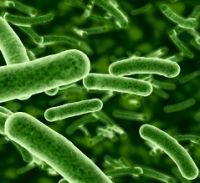

The NHS is buying drugs from Indian pharmaceutical companies, which use dirty methods of production increasing the development of "superbugs" - a type of bacteria resistant to antibiotics. Lack of checks and regulations causes the spread of this very dangerous type of bacteria around the World, including UK and NHS hospitals.
One of the causes of this health crisis is pollution in the drug companies' supply chains. Recent tests of water samples collected from outside of the pharmaceutical companies in India which sell to NHS contained bacteria which was resistant to antibiotics made in that factory. This suggests, that the drug-contaminated waste is leaked to the natural environment surrounding the facilities, which causes naturally occurring bacteria to develop immunity to that type of drug, eventually becoming a "superbug".
The Department of Health (DoH), in response to these findings, said it would consider developing the new set of rules for antibiotic factories that export medicines to Britain. The investigation also established, that at least three companies licensed to produce and export drugs to the UK have not signed up to a new roadmap put in place following a recent United Nations antibiotic resistance summit, where pharmaceutical firms pledged to review manufacturing and supply chains to ensure control of the release of antibiotics to the environment.
A global review of antibiotic resistance, lead by Lord Jim O'Neil, stated, that the results were "deeply troubling". The study presented, that superbugs could kill more people than cancer by 2050 if no action is taken, and cited pollution in pharmaceutical supply chains as a major problem.
The Medicines and Healthcare Regulatory Authority (MHRA), which licenses companies to make drugs for the UK market and carries out audits of factories, has currently no regulations around waste, neither does the European Medicines Agency. Both agencies require manufacturers to follow Good Manufacturing Practices (GMP) where standards are set to ensure the safety of drugs, but these standards do not cover the emissions to the environment.
India has become the centre of a global antibiotic resistance crisis, due to rampant overuse and misuse of drugs in human medicine and livestock farming, as well as the bad practice from the pharmaceutical companies. Some types of E.coli and Klebsiella found resistant to carbapenems, the last resort antibiotic if the bacteria became resistant to other types of medicines.
Dr J.V. Reddy, chief doctor at Gandhi Hospital in Hyderabad, said: "Every three days a patient at the hospital dies of sepsis, with antibiotic resistance contributing to these deaths".